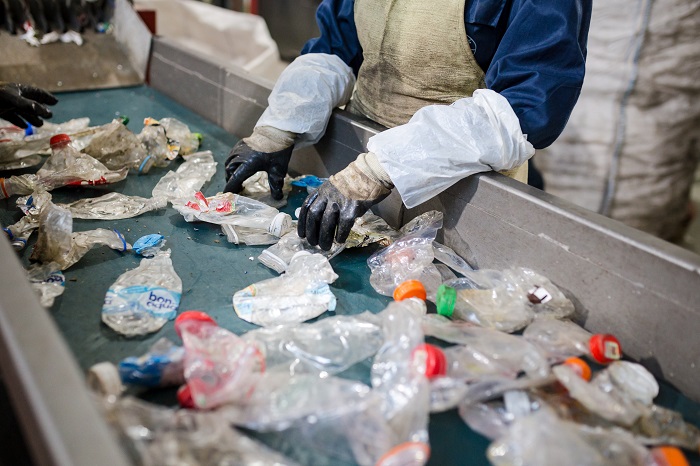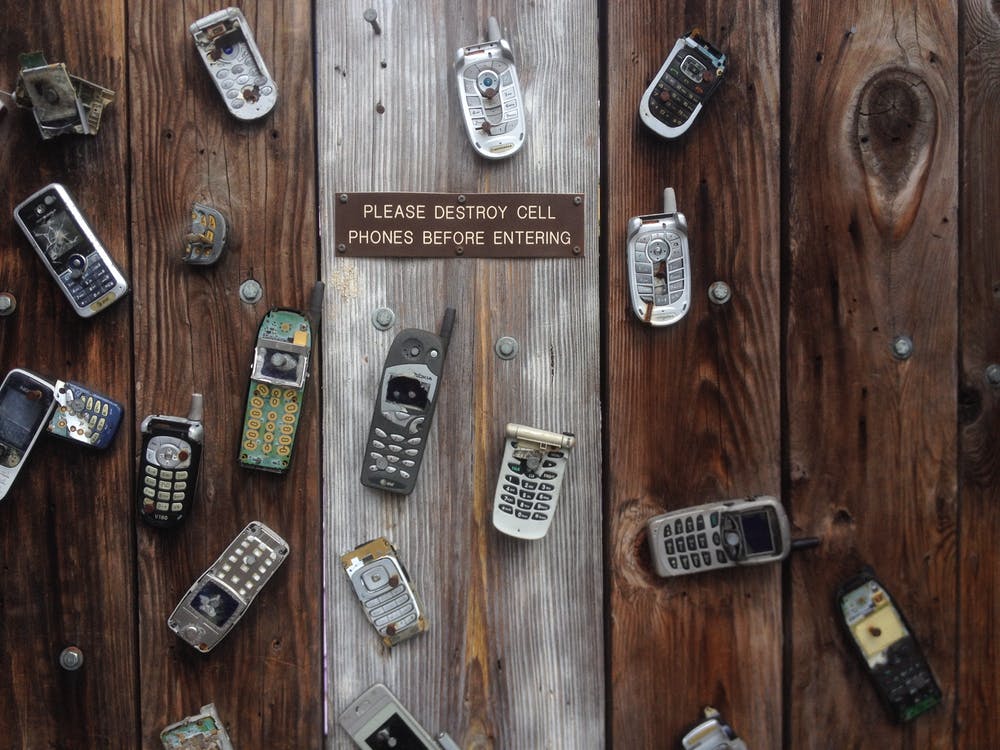
It’s never been more important to envision a better future for our world. In the face of so many serious environmental issues, we need a lot more than just awareness of what’s wrong. The world needs ideas about how things could be made better and more sustainable while offering a high quality of life for humans everywhere.
If the whole world made a commitment to a zero waste lifestyle today, where could we be in 10 years? Join us as we look at six visions of a zero waste future that will give you hope, inspiration and motivation to be the change you want to see!

Source: Julia Sudnitskaya/Shutterstock
- All waste will be disposed of via recycling or composting rather than landfills.
One key component of the zero waste philosophy is a circular economy that reclaims all of its waste. That means commitment to turning all of our full trash bags into recycling bags full of material on its way to be turned into new goods, or compostable trash bags for our table scraps and yard waste.
It’ll also be important to transform the materials used for everyday essentials. Certain materials that are difficult to recycle, such as polystyrene foam, might be banned in the future. Meanwhile, we could see biodegradable items or reusable items like wooden toothbrushes and metal drinking straws become commonplace.
- Electric vehicles will be everywhere, and be more sustainable.
Carbon emissions are one of the most harmful forms of waste, and the coming transition to electric vehicles (EVs) offers a great opportunity to reduce them. That alone, however, won’t be enough. A zero waste society will need to fully decarbonize its power grid to ensure that EVs are being charged by renewable energy. In addition, the EV industry will need to develop new recycling techniques for EV batteries.
The path to full electrification of vehicles is already in motion. Automakers worldwide have announced major commitments to EV technology, and big businesses like Amazon and FedEx are working on electrifying their fleets. Plus, the explosive growth in the wind and solar power industries is likely to continue, so a zero waste grid isn’t as far off as it might seem.
- Alternative transportation methods like bikes and public transit will play a much bigger role.
In densely developed areas, expanded public transit and bike infrastructure may have as big a role to play as EVs. These lower- or zero-carbon transportation alternatives can move people more efficiently in cities than personal EVs, which also helps eliminate another kind of waste: time wasted in traffic!
Both of these systems require investment to reach their potential. A zero waste society would need safe and convenient bike routes to allow people to reach their destinations without fear of motor vehicles. It would also need public transportation like trains and/or buses that are convenient for the schedules of working people. Long-term investments in these areas would pay off in the form of more pleasant and less polluted cities.

Source: Jack Frog/Shutterstock
- Fresh, in-season produce will be available through technology that connects consumers directly with local farmers.
The local food movement has already been building steam, but it could go to the next level if there were better platforms to connect consumers directly with farmers. Apps could remind consumers about nearby farmers markets and let them place orders for pickup, or even offer fresh produce for delivery via bike or EV couriers.
These tools would make it easier for farmers to sell their produce more profitably directly to the consumer, which would also encourage new farmers to get into the market. Municipal composting programs could then collect food scraps from consumers’ kitchens and offer them back to the farmers, creating the circular economy that’s such a crucial element of zero waste systems.
- Restaurants will offer delivery and to-go food in reusable or compostable containers.
We can ditch the single-use plastic packaging without forgoing the to-go food we love! In fact, some restaurants are already embracing reusable packaging, and reusable and compostable containers for food are widely available. It’s a matter of figuring out the logistics and creating incentives to encourage restaurants to switch.
For example, we could have GrubHub-esque apps that only deliver in reusable containers and have couriers collect the containers from receptacles outside consumers’ homes. Or, restaurants could receive a tax break to offset the cost of switching to compostable containers. For takeout food, consumers could bring their own containers to reuse again and again!
- Refillable and DIY consumer products will become much more common.
Household products, from kitchen cleaners to shampoo, are another significant source of single-use packaging waste. In a zero waste future, we could see the development of numerous new forms for products that eliminate wasteful packaging and give consumers only what they need.
Some hair care companies, for example, now offer their shampoo products in bar form rather than as a liquid, vastly reducing the packaging required. Other companies offer cleaning products with reusable containers. The customer buys a reusable glass container and then purchases refills from the company when they need more.
As public awareness of plastic waste grows, we’ll hopefully see even more companies developing these innovative business models. Every eco-friendly alternative that succeeds shows consumers that living with zero waste really isn’t as hard as it seems. In fact, it can significantly upgrade your quality of life!

Source: 4Max/Shutterstock
None of the proposals we’ve discussed here are pie in the sky. Each is possible with the tech we have today, or with a few more years’ advances. The key element will be willpower — from the public, from governments and from business — to turn dreams into reality!



